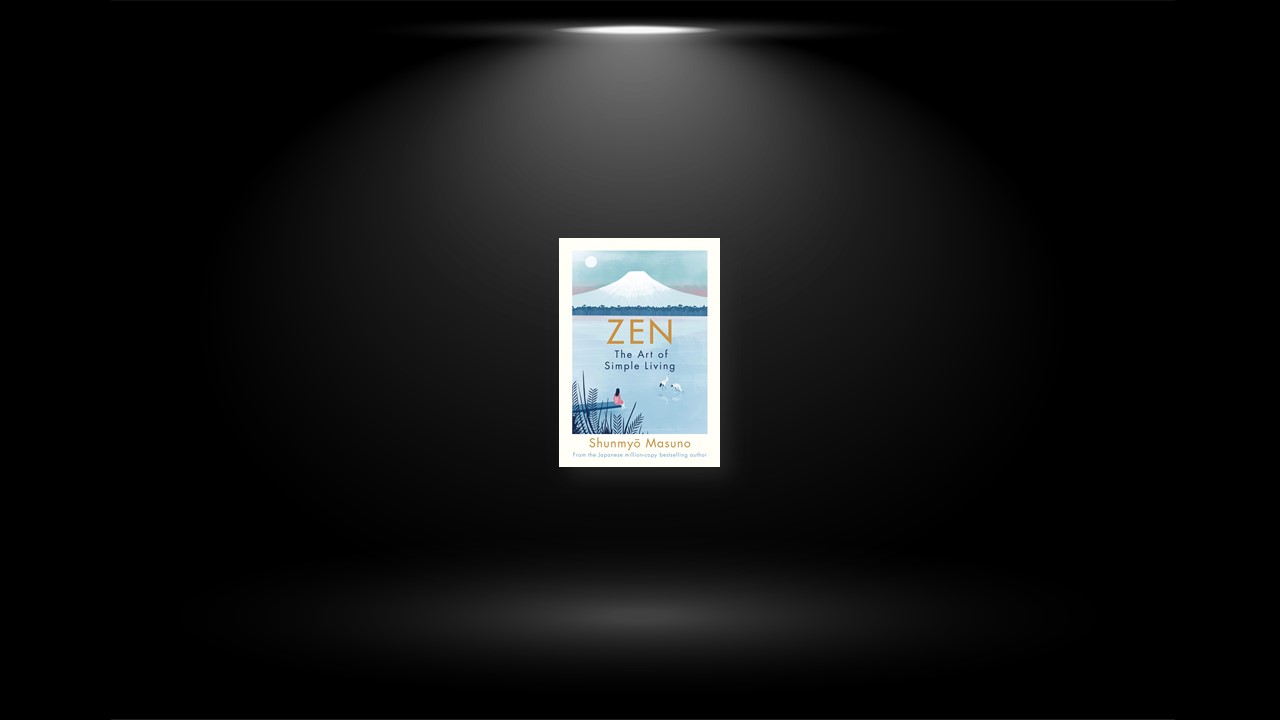Make time for emptiness
In our everyday lives, do any of us have time to think about nothing? I imagine most people would say, ‘I don’t have a moment to spare for that.’ We’re pressed for time, pressured by work and everything else in our lives. Modern life is busier than ever. All day, every day, we try our best just to do what has to get done.
If we immerse ourselves in this kind of routine, unconsciously but inevitably we lose sight of our true selves, and of true happiness. Any given day, a mere ten minutes is all you need. Try making time for emptiness, for not thinking about anything. Just try clearing your mind, and not being caught up in the things around you.
Various thoughts will float up in your mind, but try to send them away, one by one. When you do so, you will begin to notice the present moment, the subtle shifts in nature that are keeping you alive. When you are not distracted by other things, your pure and honest self can be revealed.
Making time for not thinking about anything – that is the first step towards creating a simple life
Try your best to do what you can now
There is a story about chasing clouds, and about clouds getting away. You’re out in the hot summer sun, working in the fields. Without any clouds to shield you from the blazing sun, you must endure the heat. But then you look up at the sky, and off in the distance you spot a wisp of white.
‘Ah, I bet it will be cooler in the shade of that cloud. I hope it makes its way over here soon,’ you think to yourself, and you even contemplate taking a break from your work until the cloud arrives. But the reality is, the cloud may never arrive to protect you from the sun, and the day might end while you have paused your work, anticipating the shade.
Rather than waiting for the cloud to approach, strive to do now what needs to be done. If you work intently, you may forget how hot it is. Then, before you know it, the cloud will arrive and bring with it a refreshing coolness.
What I’m talking about here could apply not only to clouds but also to fate or fortune. There’s no point in envying someone else who has been blessed with a little luck. Nor does it do any good to lament your lack of opportunities. Simply work hard to do today what needs to be done. And fortune will surely come your way
Discover another you
In order to live more freely, or with more ease, Zen Buddhism teaches the importance of not labelling ourselves as ‘this or that kind of person’. Let me give you an example. There is another you within yourself. This version of you is freer than the self you think you know, and rich with potential. It is your essential self. Within yourself lives your true protagonist.
In Zen terms, the word for ‘protagonist’ is also translated as ‘master’. There is a famous story of a Zen monk who would address himself, saying, ‘Hey, master!’ and his self would reply, ‘Yes?’ He would then ask, ‘Are you awake?’ and his self would again reply, ‘Yes!’ He would continue this questioning in earnest.
Each of us plays various roles in society. You may be an office worker, a mother or a cook in a restaurant. These are, without a doubt, our various ‘selves’. But we each have another self, the true protagonist that lives within us. Do your best to awaken this other self.
Appreciate your connection with things
Even though you already have a computer, when the latest model is released, suddenly you want it. Although you’ve had your car for only three years, you’re eager to replace it with a newer one. Desire feeds upon itself, and the mind becomes dominated by boundless greed. This is not happiness.
Consider the things that surround you now. Develop an appreciation for them. There is something specific that connects you with them, a reason why you acquired them. Take good care of them; treat them like they are the best things.
You may decide you want a car, and then work hard to save money for it. There’s nothing wrong with that. The important thing is to treat it with love once you have it. Think of the things that are connected to you as parts of yourself. It’s rare to find someone who does not care about themselves; once you acquire something and begin to take care of it, a love for it will spring up. What is most important is your attitude towards the things that belong to you.
Use the same things for years, even for decades. You will feel good about the time spent with them. Think about the connection between people and things. Treat both well, as you would treat yourself
Serve people
A state of utter clarity, uncomplicated by desire or any attachments – that is the state of ‘nothingness’, which Zen emphasizes above all else. This emptiness of thought is the basis for the teachings of the Buddha, and for his fundamental notions of impermanence and insubstantiality. The Buddha teaches that human suffering occurs when we lack awareness of this impermanence and insubstantiality.
In other words, our confusion and worry stem from an inability to accept that the world is constantly changing, from a belief – or an unconscious hope – that our selves and our possessions, as well as the people who surround us, will never change.
It is precisely when we are betrayed by such a hope that we experience distress. Everything exerts an influence on everything else. For example, if you decide that you want to be happy, you need the people around you to be happy as well. This is how serving others can help to bring about your own happiness.
Do not cling to your belief in what is and always should be. Practise non-attachment. By doing so, you will be serving the happiness of others. Bear this in mind, and you will have a much more contented life.
Skilfully detach
Words are important. But it is more important not to be swayed by words. At work or in social situations, there may be times when we find ourselves hurt by words that are directed at us. Even though someone may intend to be encouraging, the person on the receiving end can hear their words as cruel or harsh. A single word from a colleague can pierce like a dagger.
But negative comments should quickly be forgotten. This can be done by skilfully ‘paying no attention’. The Zen mind is said to be ‘unmoved even when the eight winds blow’. We strive to remain unperturbed, no matter the situation – and even to be calm and good-humoured.
Try freeing yourself from attachment to things. Do not be attached to words, either. Even when your interactions with someone are strained, do not be attached to the relationship. Try putting it at a distance. This is the wisdom of the Buddha. To live freely, we must acquire an unfettered mind.
Make the most of life
This may seem out of the blue, but whose life is it, anyway? To those who immediately reply, ‘My life is definitely mine,’ let’s think about that for a moment.
In Buddhism, the word jomyo means one’s predestined lifespan. Each of us has our own jomyo. From the moment we are born, the length of our lifetime is determined. But none of us knows how long it will be.
In other words, being alive means we must make the most of the life we are entrusted with. Life is not ours to possess – it is a precious gift that we must treat as if it were placed in our care. And whatever lifespan we are given, we must take the utmost care to give it back.
Some among us will be graced with a long life, and others may have only a brief amount of time. There is nothing fair about this. But Buddhism teaches that a life’s worth is not measured by its duration.
What is important is how we use the life we are given. How will you use your life today?


